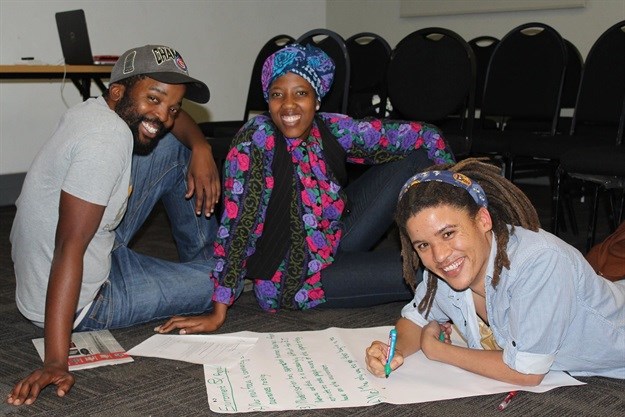






Activate! Change Drivers is a national non-profit organisation in South Africa with the primary objective of equipping the youth to become active citizens in order to influence and provoke positive change in their communities. Activate! has trained and empowered over 3,400 young South Africans in previously disadvantaged communities since it was launched seven years ago, creating a network of change agents that have a daily impact in their communities.
Its youthful change drivers, known as ‘activators’, have in total contributed R31m worth of free volunteer hours to the South African economy to create social change.
“Activate was launched with the idea that there are amazing young people who exist all over the country and many of them are very isolated. If we could find them and bring them into a programmatic space to meet each other and connect, that would be very beneficial.
“Many young people don’t have access to resources, they are drop outs or can’t go on to university or a tertiary institution – so they don’t know what they don’t know, which is dangerous and there are limited avenues for development,” explains Meintjes.
Activate conducts research every year through its YouCount survey to track how its activators measure up against the rest of the youth in South Africa as regards social, economic, and political progress, challenges and awareness.
“Our youth activators track differently to the rest of the country. Youth voter apathy does not apply to our activators. They are socially active citizens. They inspire other young people to engage more politically, as well as in their communities. They are looking at the needs of their communities and how they can deliver on those needs.”
South Africa, like the rest of Africa, faces a youth bulge, where almost 50% of the population is under the age of 25 years (27 million youth, Stats SA 2018) compared to the total population of 57 million (Stats SA, 2018).
Based on its work in empowering over 3,400 youth in its network of youth activators over the past seven years, this is what Meintjes recommends for meaningful and lasting change to take place for South Africa’s youth:
Capacity building is a key initiative of what needs to be addressed. “If I want to ride a bike, I need a bike. Then I need to try ride the bike. Maybe I need someone to help me learn how to ride a bike. But there is still a difference between someone who rides a bike and races a bike. The thing is, if this capacity building is not happening at school or through other institutions, how are they going to survive in the workplace?” asks Meintjes.